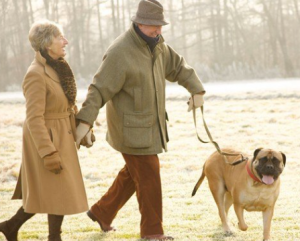 The sentiments are well known:
The sentiments are well known:
“man’s best friend,
“unconditional love,
“protect you with their life.”
We are talking about our love affair with our pets, and especially, our devotion to our dogs. They serve as our companions, guide us, entertain us, comfort us, alert us to danger, monitor our health, assist law enforcement, and even herd unruly and mischievous farm animals. That’s quite the list – and all this for care, approval, and a few tasty treats.
The Benefits
We attribute much to the power of our pets. There are many claims that our pets can reduce stress, mitigate depression and loneliness, lower our blood pressure, and in doing so, perhaps even extend our lifespan. They show us what unconditional love looks like and demonstrate how to live in the moment. Taking our pets out for frequent walks helps to keep us more active and engaged in their communities.
Psychologist Penny B. Donnenfeld suggests that interaction with a personal pet can even prompt better memory recall and access to memories in older persons. She also explains that attending to the needs of a pet can help to shift the owner’s attention away from their own challenges and losses associated with aging.
The Controversy
The trend to embrace the power of pets in supporting our emotional needs is not without controversy. Some state that as much as we love to believe that pets make this positive difference, they assert that these beliefs are not supported with good research. These researchers declare that the cold hard numbers are just not there, and that research that does suggest a relationship are confusing causation with correlation.
The Response
Molly K. Crossman, a Ph.D. candidate at Yale University looked at the problems with the previous research, and set out to design a study that would address the limits, and control for other factors that could impact the results. She was able to show conclusively that unstructured interactions with a therapy dog did in fact boost children’s positive emotions following exposure to a moderate stressor. The improvement was significantly greater for the therapy dog group when compared to children who received a soft
blanket for comfort, or simply waited for a period of time after the stressor. More details from her study are now used to inform the development of effective programs.
Tips for Seniors
Regardless of why we choose to become pet owners, there are a number of factors that need to be considered.
- Finances. Can you afford to look after a pet? Find out the costs of quality food, regular vet visits for check-ups and shots, as well as costs for grooming. It is also a good idea to either secure pet insurance or start to set aside money to cover unexpected emergencies associated with your pet’s health and behavior.
- Pet temperament. Try to choose a pet that is more likely to have a temperament that will fit with your lifestyle. Are you up for the energy and requirements of a Border Collie or a Jack Russell? Are you able to manage the protective nature of a Doberman or a Shephard?
- Health or functional limitations. Those who may find it challenging to reliably walk and care for a dog may want to consider a cat or bird or fish as an alternative.
- Pet owner experience. Those who do not have extensive experience with pets will need to do a little research first to find out which pets and breeds have a reputation for low or easy maintenance.
- Age of the pet. Puppies and kittens are adorable, but do require more work and training.
- Age of the owner. Will you likely be able to care for your pet for the foreseeable future? It is also a good idea to pre-determine what will happen to your pet in the event that you pass away before they do.
Conclusion
It just might be that the loving bond and connection we have with our pets is not easily quantified with traditional research methodology. And perhaps that is just as well. Until my family and friends leap up and greet me with unbridled joy each and every time I merely walk through the front door, I think I’ll continue to argue for the difference they make in my life.
Rhonda Latreille, MBA, CPCA
Founder & CEO
Age-Friendly Business
The Effects of Touch
The Touch Research Institute (TRI) studies the effects of touch therapy and have concluded that all ages from infancy to late life benefit from various forms of touch. According to TRI, massage therapy enhances attentiveness, reduces pain, alleviates depressive symptoms, reduces stress hormones and enhances immune function. Massage also helped premature babies gain weight.
Animal Love
“Until one has loved an animal, a part of one’s soul remains unawakened.”
Anatole France


0 Comments